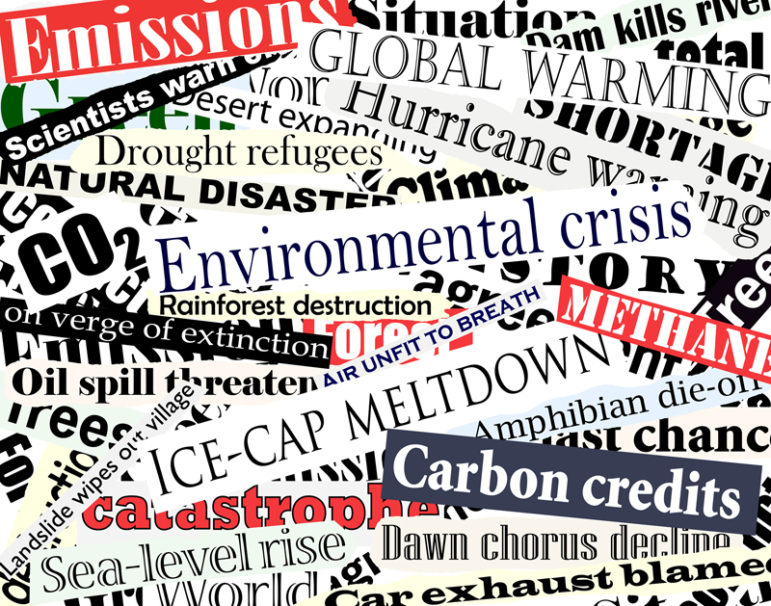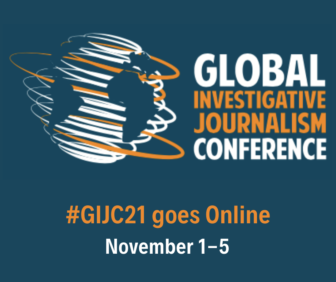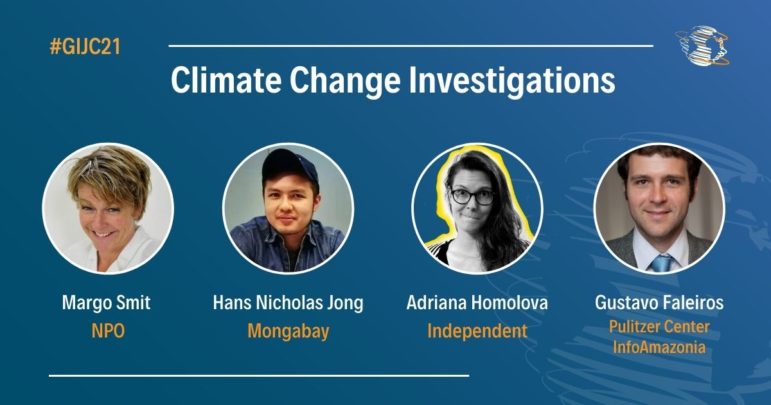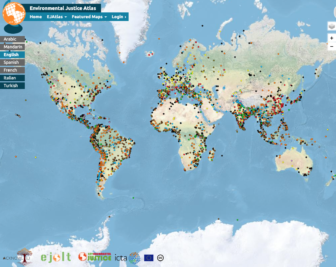

Image: Shutterstock, Robert Adrian Hillman
Tips for Investigating the Climate Change Crisis
Journalists must collaborate when working on climate change stories to better serve readers, said Gustavo Faleiros, environment investigations editor at the Pulitzer Center’s Rainforest Investigations Network (RIN). Speaking at a session on climate change investigations at the 12th Global Investigative Journalism Conference (#GIJC21), he explained that transnational projects are key because of the very nature of climate reporting, which often crosses borders.
“Environmental issues are very complex, sometimes impacting more than one site — ecosystems or water basins representing several countries,” he noted.
He also pointed out how environmental stories can pose a security challenge for journalists, and how collaboration reduces the risk. For example, journalists working on a team can keep an eye out for one another in threatening situations. There is power in numbers.
Coming against the backdrop of the 2021 United Nations climate change conference (COP26) in Glasgow, which began this week, speakers in this GIJC21 session offered tips and tools for journalists doing in-depth investigations of these issues.
Hans Nicholas Jong, an Indonesia-based journalist with environmental news site Mongabay, said he often looks to various open-source platforms for data and research, as well as ideas. He recommended four of these sites that he frequently uses in his climate change reporting:
- Climate Action Tracker: This online platform gives an overview of climate change, both locally and globally. It also tracks the climate-mitigation measures individual governments are taking versus what they promised to do in the Paris Agreement, which set the goal of keeping global warming from rising 2°C and preferably limiting it to 1.5°C. The site also provides various climate change indicators for a specific region or country.
- Climate Analytics: This online platform provides access to research about climate change in specific countries or regions and shows the impact of climate change and how it has increased over time. It also measures the costs of inaction on an economy and gives an overview of the current use of coal.
- Global Energy Monitor: This online open-source tracker documents fossil fuel projects worldwide. The platform also explains global energy systems in detail and offers a plethora of data and research.
- Environmental Justice Atlas: The Atlas highlights conflicts that have arisen due to climate change-related issues across the globe and allows users to focus on a specific country or region.
Meanwhile, Netherlands-based freelance data journalist Adriana Homolova, speaking at the session, said an often overlooked story is the role of climate deniers. She urged journalists to investigate these faux experts as to their sources of misinformation and who is backing them. Her 2017 investigation on climate change skeptics in the Netherlands, for example, analyzed 7,430 tweets over three months on Twitter to analyze those who posted and their misleading discussions about climate change.
“I think it’s important … that we found who they are, what motivates them, who gives them money to do their speeches,” she said. “That’s important to look into.”
GIJN offers numerous resources to assist journalists digging into climate change. See our guide Investigating Climate Change, and a chapter on covering Environmental Crime in our new Reporter’s Guide to Investigative Organized Crime, released on the first day of GIJC21.











